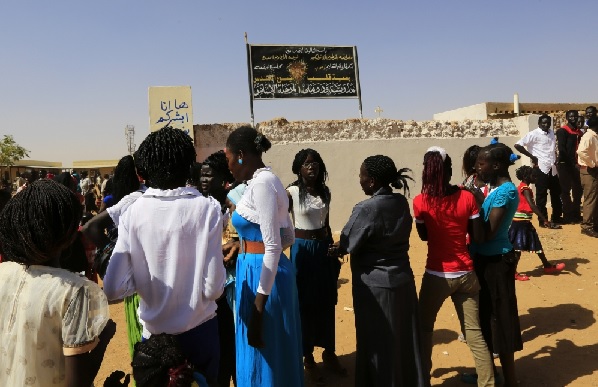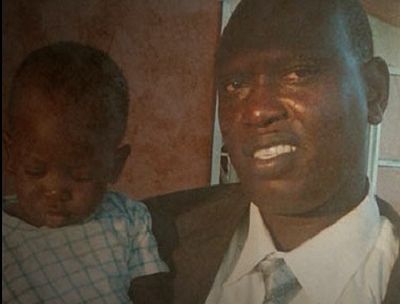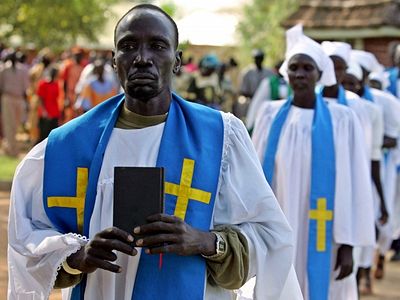Sudan, July 2, 2015
Sudanese authorities arrested 12 young Christian women in Khartoum and forced them to strip out of their clothes after they left a church service wearing what was deemed "immoral dress," a Christian persecution watchdog organization has reported.
According to Christian Solidarity Worldwide, the 12 women were leaving a service at the El Izba Baptist Church in Khartoum last Thursday wearing trousers and skirts when they were detained by the local public order police.
The women were taken to the police station and forced to remove their clothing to allow the police officers to inspect the clothing to verify the clothing's indecency.
Faith McDonnell, director of religious liberty programs and of the Church Alliance for a New Sudan at the Washington D.C.-based Institute on Religion & Democracy, told The Christian Post on Thursday that Sudan's constitution states that the immoral dress law does not apply to Christians, since they are not expected to follow Shariah law.
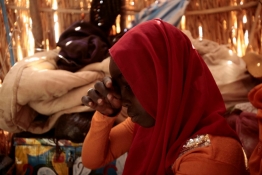 Displaced Sudanese girl Hawa Sliman Idriss
Displaced Sudanese girl Hawa Sliman Idriss
"In fact, the attorneys who represented them said that there is a broad scope to define what constitutes indecent or immoral dress, and basically it is whatever Khartoum wants it to be at the moment," she added.
McDonnell told CP that she finds it "hypocritical" for authorities to force the women to strip after they were arrested for "indecent clothing."
"They were arrested by the public order police because they were wearing indecent clothing. When they got to the police headquarters, they had to take off the clothing," MCDonnell stated. "So they basically made them strip so that they could check and see if the clothes were actually immoral or not. So, that is quite a hypocritical stance."
Two of the girls were reportedly freed and not charged with any crime, while 10 others were charged with violating the dress code under Article 152 of the Sudanese Criminal Code. The females were released on bail and now are awaiting their hearings.
It's believed that at least three of the girls are younger than 18, but were still charged as adults.
"We are deeply concerned by the unwarranted arrest of these 12 young women and are alarmed by reports that three of them may be minors who have been arrested arbitrarily and charged as adults in violation of their rights under Articles 37 and 40 of the Convention on the Rights of the Child, to which Sudan is a party," CSW Chief Executive Mervyn Thomas said in a statement.
"Furthermore, forcing these young women to undress amounts to degrading treatment, as defined by Article 7 of the International Covenant on Civil and Political Rights, to which Sudan is also a party."
Lawyers for the women claim that the charges against them prove that the immoral dress law is only arbitrarily applied and added that the law is also very broad and not well defined.
"Two of the women were released. Who decided that their dress was no longer immoral if when they were arrested their dress was considered indecent?" One of the lawyers told CSW. "The law needs to be clarified."
The arrest of the women comes as two Sudanese pastors have been sitting in prison in Khartoum on trumped-up espionage charges since the winter.
The pastors, Rev. Yat Michael and Rev. Peter Reith, could face the death penalty after a judge ruled in a court hearing Thursday that the case against the pastors is allowed to move forward.
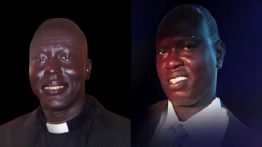 Sudanese Pastors Facing Execution
Sudanese Pastors Facing Execution
Additionally, the pastors' lead attorney (the lawyer who represented Christian mother Meriam Ibrahim), Mohaned Mustafa, was arrested on Wednesday with pastor Hafez of the Khartoum Bhari Evangelical Church after speaking out against the government and its land dispute over the church's property.
Although Mustafa was arrested just one day before the pastors' hearing, he was released on bail and able to represent the pastors in the Thursday hearing.
"The arrests of Pastor Hafez and Mr. Mustafa, who also face unwarranted charges, are a cause for great concern," Thomas stated. "This unacceptable harassment of a human rights defender during the discharge of his duties may be an indication of high-level efforts to interfere with the judicial process in cases involving religious minorities by discouraging lawyers from offering assistance. Once again we appeal to the international community, in particular the African Union, to hold Sudan to its international obligations."
